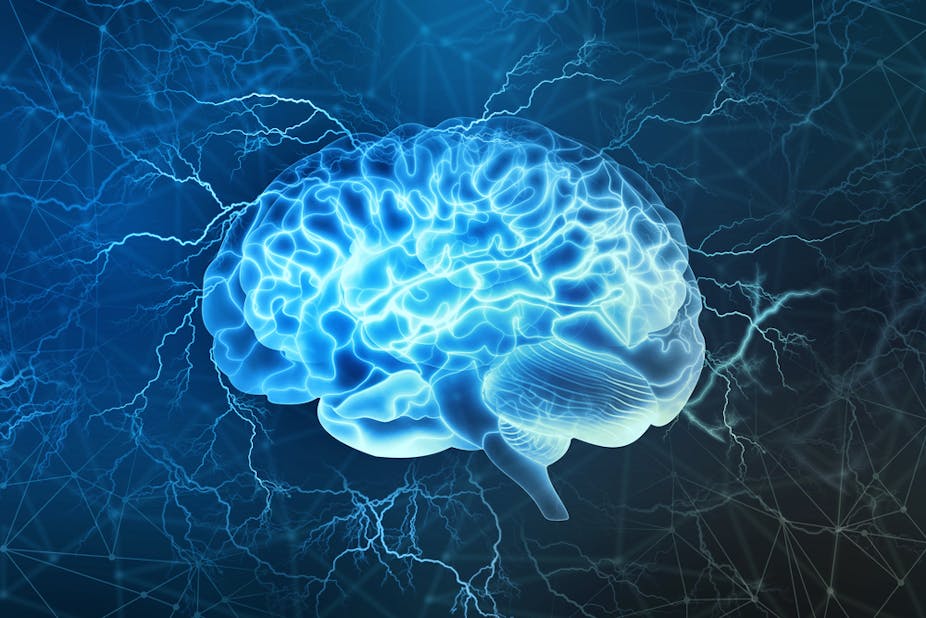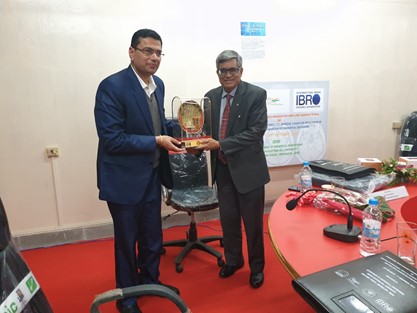NEHU-Neuroscience
Neuroscience is one of the
fast-growing subjects in the Department of Biomedical Engineering, NEHU that
aims to understand brain and nervous system complications. Workshops and
conference symposiums are the key part of improving this profession
since they allow scholars and practitioners to share knowledge, discuss
research findings, and explore new methodologies and ideas with National and
International collaborations.
Department of Biomedical
Engineering (DBE), NEHU
The Department of Biomedical
Engineering (BME), funded by the Ministry of Human Resource Development,
Government of India, was established in 2012 as part of the School of
Technology, NEHU, Shillong, with the specific goal of promoting learning
in newly emerging areas of Medical Sciences and employing technological
advancements for the benefit of the masses. The University's Department strives
to educate young minds in the hopes of developing superior healthcare
solutions, with an emphasis on learning new techniques; expanding creative
ideas through learning, skill development, Research and Development (R&D),
and Industry-Institution engagement in the sector. The Department also seeks to
accelerate R&D efforts in developing goods and services that may be conveyed
to society for the benefit of humanity. DBE brings together faculty from
various backgrounds and areas of expertise, boasting a talented team of six
faculty members with extensive experience in Electrophysiology; Biomedical
Instrumentation; Machine Learning and ANN; Biomedical Signal Processing;
Rehabilitation Systems; Neural Mechanism and Motor Neural; Signal and Image
Processing; Marketing, International Business, and Environment Sustainability,
among many other fields. The Department features professors with extensive
research and teaching expertise spanning the country, and it offers B.Tech,
M.Tech, and Ph.D. degrees in Biomedical Engineering.
Our vision
"The Academy encourages you to
join the League of Neuroscientists and become an Academy member, therefore
assisting the Academy in meeting its goals and missions. We are committed to
establishing and maintaining the conditions that will allow all Biomedical
students to embark on a unique educational adventure that will be academically,
socially, and personally transformative."
Society for Neurochemistry, India
(SNCI)
SNCI is a national scientific
body with several branches across India, with many local chapters maintained
under the umbrella of the headquarters located at the University of Hyderabad,
Hyderabad, T.S., India. NEHU is one of the active branches that run under the
supervision of Dr. Dinesh Bhatia (DBE) who is passionate about
educating young students on the essential skills of Neurochemistry and
Neuroscience. SNCI arranges its yearly gatherings (workshops and
conferences) in one of the local chapters every year and alerts life
members by sending the relevant information over emails. The SNCI
worked closely with the International Society for Neurochemistry (ISN) and the
International Brain Research Organization (IBRO) to facilitate information
sharing among neuroscientists worldwide. In addition, the society
honors doyens in Neurochemistry/Neuroscience with a lifetime achievement
award.
1. National Conference on “Advances
in Computational Neuroscience (ACNE)” sponsored by INCNE grant, NBRC, Manesar,
Department of Biotechnology (DBT), Govt. of India.
The Department of Biomedical
Engineering and Computer Centre at North-Eastern Hill University (NEHU),
Shillong, organized the 29th Annual Meeting of the Society for
Neurochemistry, India. The event was a national workshop and conference that
completely focused on “Advances in Computational Neurochemistry and
Neurobiology” and was conducted from December 16th to 21st,
2015. The primary goal of the event threw light on promoting Neuroscience and
Neurochemistry in the remote north-eastern region of India and other parts of
the country by enhancing guidance and support to students and young faculty members.
The colloquium on Neuroscience took place, with Prof. Kumar Sambamurti of the
Medical University of South Carolina as a keynote speaker. The conference was
attended by manifold Neuroscientists across India, who also shared their
foreknowledge and advancements in the field. Prof. Prakash Babu Phanithi,
Secretary of the Society for Neurochemistry, India, SNCI conveyed a magnificent
speech in course of the conference’s inaugural. Dr. Sudip Paul, currently in
charge of Biomedical Engineering, served as the Organizing Secretary, while Dr.
Dinesh Bhatia, Late Head of Biomedical Engineering, was the Convener, and Dr.
T. K. Sinha, Associate Professor of Computer Science, also the holder of
Co-Organizing Secretary in their organization.
2. “IBRO/APRC Associate School 2017
on Computational approaches in Neuroprotection and Neurorehabilitation”
The International Brain Research
Organization (IBRO) Associate School, 2017 organized by the Department of
Biomedical Engineering at North-Eastern Hill University, Shillong, India, was
the first of its kind in the north-eastern region of the country. The theme of
the agenda was “Computational Approaches in Neuroprotection and
Neurorehabilitation’, with an aim of promoting research and training in the
field of Neurosciences and Neurorehabilitation and emphasizing the
North-Eastern states of India and the Asia Pacific region, at large during 05th
-10th June 2017. Neuroscience techniques have broadened
significantly, from studying single nerve cells at a molecular level to using
imaging and computational methods to understand perception and movement in the
brain. The study involved 40 participants, mostly from different universities
and institutes in India, as well as Iran, Nepal, and Bangladesh. The opening
ceremony was led by our esteemed Vice-Chancellor, Prof. S. K. Srivastava. The
event had several notable guests, including the Chief Guest, Prof. Andrew J.
Lawrence from the University of Melbourne, Australia; Prof. P. V. Koparkar,
Dean of the School of Technology at NEHU; Dr. Dinesh Bhatia, Head of the
Department of Biomedical Engineering, who served as the chairperson of the
program, and Dr. Sudip Paul, who organized the program and expressed gratitude
to the International Brain Research Organization (IBRO) and other sponsors for
their generous contributions, which helped make the event a great success.
3. Inaugural Programme of IBRO
International School on “Modern Interventional Tools for Children with
Disability”
The Department of Biomedical
Engineering and the Department of Education at North Eastern Hill University
collaborated to host an IBRO-APRC Associate School on “Modern Interventional
Tools for Children with Neurodevelopmental Disorders” from October 25th
to October 30th, 2021. The objective was to equip participants with
a comprehensive understanding of contemporary intervention tools for cognitive
impairments in children with Neurodevelopmental disorders, with the goal of
enhancing their functional outcomes and quality of life. The School was
organized in close coordination with the Society for Neurochemistry India
(SNCI) Satellite meeting with the IBRO at large from 30th October to
1st November 2021. The School provided exposure and included
hands-on training to the participants with the theme “Modern interventional
tools to improve Cognitive behavior in children with Neurodevelopmental
disorders” with the allowance of understanding how diseased brain conditions
could be improved and made to function similarly to the normal human brain.
This was one of the major facts of Neuroscience research which encompassed most
of these disorders, and it was one of the biggest challenges for survivors. The
School’s opening ceremony was held on 25.10.2021 with a blend of in-person and
virtual attendance, Dr. Dinesh Bhatia, Associate Professor and Coordinator of
the Biomedical Engineering Department at NEHU, Shillong, gave the opening
remarks. He highlighted the importance of the School, the selection process for
participants, and the various topics that experts from India and other countries
would cover throughout the week-long program. Dr. Bhatia expressed his
gratitude to IBRO and SNCI officials for their support in organizing the
events. After the dignitaries were recognized, the School was inaugurated by
Prof. P.S. Shukla, NEHU’s Vice Chancellor in Shillong, as the Chief Guest.
During his speech, Prof. Shukla discussed how modern technology could affect
children with disabilities and how it relates to socio-economic factors in the
North-Eastern region. The Special Invited Guest Dr. Cheah Pike See, Chair, IBRO
APRC from the Universiti Putra, Malaysia discussed the scope of the IBRO School
and the opportunities available to young budding scientists and researchers for
seeking funding from the IBRO.
The conference also includes the
following events:
International School for Children
with Neurodevelopmental Disorders concludes at NEHU
The Department of Biomedical
Engineering, in conjunction with the Department of Education at North Eastern
Hill University in Shillong, hosted an IBRO APRC Associate School from October
25 to 29, 2021. The purpose of the IBRO-APRC Associate School was to provide
participants with comprehensive knowledge of modern interventional tools for
improving the functional outcome and quality of life of children with neurodevelopmental
disorders. The School included hands-on training and exposure to the theme
“Modern Interventional Tools to Improve Cognitive Behavior in Children with
Neurodevelopmental Disorders” to demonstrate how diseased brain function could
be improved to resemble that of a normal human brain.
SNCI Satellite Meeting on
Cognitive and Neurodevelopmental Disorders starts at NEHU
The Society for Neurochemistry
India (SNCI) held a satellite meeting from October 30 to November 1, 2021, in
collaboration with the School. The Satellite meeting offered significant
features such as interactive scientific debates with distinguished
professionals from India and overseas, along with participant presentations
through symposium and group meetings. The primary objective of the meeting was
to gather professionals working in the relevant field to foster innovative
technical expertise, share research ideas among participants and experts, and
promote the field’s advancement globally, involving the larger community.
Prof. M.K. Thakur, who is the
President of SNCI and the Guest of Honor from Banaras Hindu University
(B.H.U.), Varanasi, emphasized the significance of continuous efforts in the
field and the society’s responsibility in supporting such activities by holding
annual meetings in collaboration with various Chapters of the local society. He
praised Dr. Dinesh Bhatia and his team, as well as other University officials,
for successfully organizing the event in partnership with the IBRO APRC
Associate School.
IBRO 2021 MEETING: IBRO-APRC
Short-term Course on Depression, Anxiety, Mental Stress, and its Remedies in
Light of COVID-19
The IBRO 2021 Meeting had a short
course on managing depression, anxiety, and mental stress during COVID-19.
Renowned speakers from India and other countries gave ten lectures on various
aspects of mental health, such as stress management and happiness. Post-session
discussions followed each lecture, and participants, including doctors,
clinicians, and researchers in Neuroscience, attended the three-day program
that ended on December 16, 2021.
4. The XL (40th) Annual
Meeting of the Indian Academy of Neurosciences kickstarts in NEHU
The XL (40th ) Annual meeting of
the Indian Academy of Neurosciences(IAN) kick-started at North-Eastern Hill
University, Shillong along with the conference and workshops. The event was
organized by the Department of Biomedical Engineering, NEHU, Shillong.
Prof. (Dr.) Nalin Mehta, Director
of NEIGRIHMS graced the occasion as the Chief Guest while Prof. Prabha Shankar
Shukla, Vice-Chancellor, NEHU was the Guest of Honour. Other notable attendees
included Prof. Ishan K. Patro, President of IAN, Prof. Trichur R. Raju, Dean of
IAN, Prof. Vinay K. Khanna, Secretary of HQ, IAN, Prof. Pankaj Seth, General
Secretary of IAN, and Prof. Md. Iftikhar Hussain, Dean of the School of
Technology at NEHU.
The workshop saw the presentation
of lectures by eminent scientists, doctors, and researchers. He also mentioned
that the 3-day conference will see the participation of around 450 delegates
from different parts of the country and abroad like the US, Malaysia,
Singapore, Europe, etc. He thanked and
praised Prof. Shukla, Vice-Chancellor of NEHU for the support and encouragement
showered on the organizing committee for holding this international conference.
He expressed gratitude and admiration for Prof. Shukla, the Vice-Chancellor of
NEHU, for supporting and encouraging the organizing committee in hosting the
international conference. He noted that NEHU was celebrating its 50th
anniversary this year and that it was an honor to organize such a significant
event, coinciding with the Department of Biomedical Engineering’s ten-year foundation
celebration.







